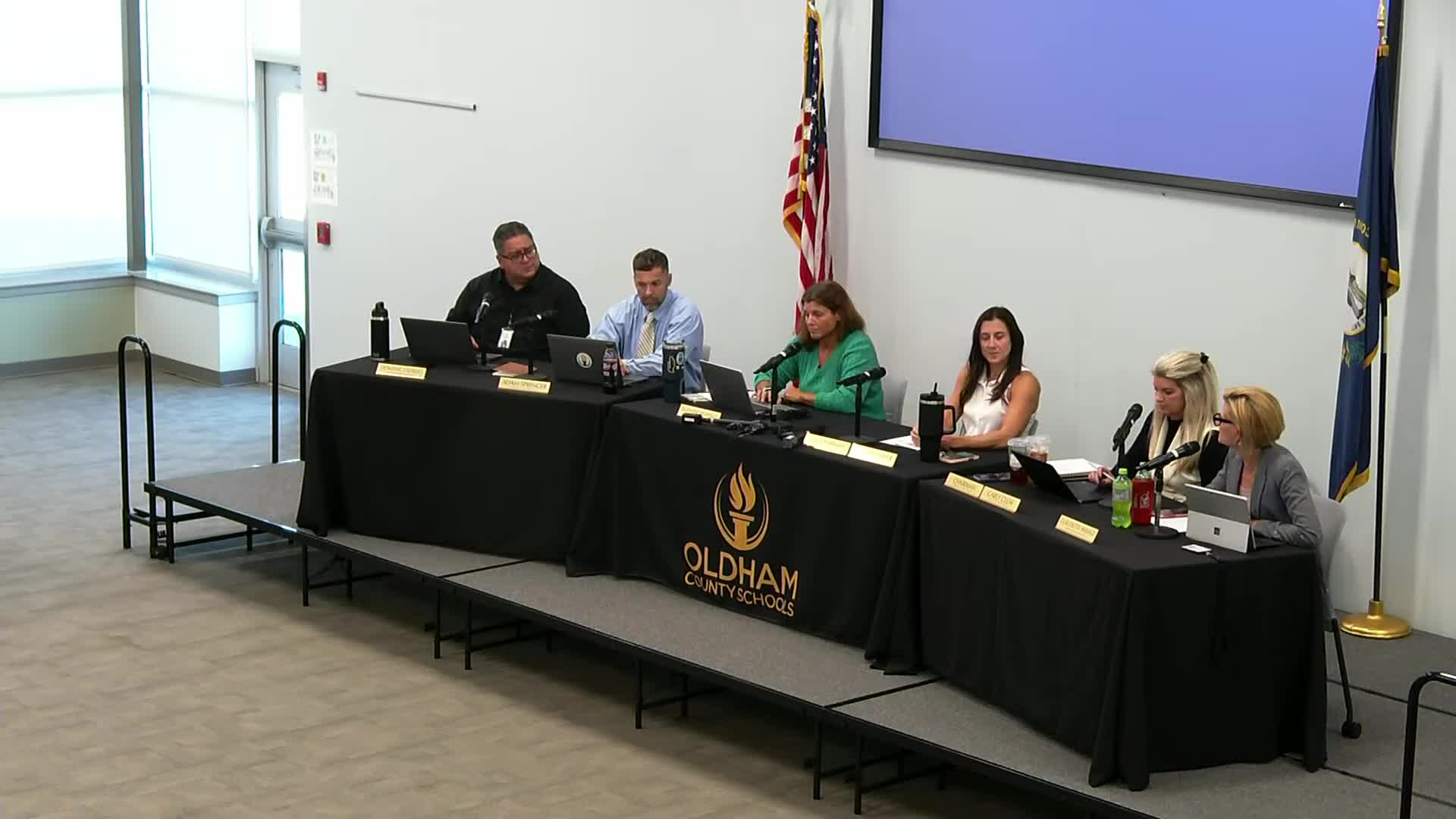Oldham County School Board votes 5-0 to deny Lifewise Academy request for in‑school moral instruction under KRS 158.200
Get AI-powered insights, summaries, and transcripts
Subscribe
Summary
At a special meeting Oct. 8, the Oldham County School Board voted unanimously to reject Lifewise Academy’s application to provide moral instruction during the school day, citing logistics, lost instructional time and liability concerns and noting recent changes to KRS 158.200.
The Oldham County School Board voted 5-0 Wednesday, Oct. 8, at a special meeting at the Arvin Education Center to deny Lifewise Academy’s application to provide moral instruction to students during the school day under KRS 158.200.
Board members cited logistical burdens for school offices and teachers, potential lost instructional time for students, and liability and precedent concerns in explaining the unanimous decision. The motion to deny the Lifewise application was made by Miss Sheffer and seconded by Miss Henley; the vote was recorded as 5-0.
Board members said the conversation was driven in part by changes to state law. One board member noted that the recent amendment to the release-time statute, cited in the meeting as KRS 158.200, altered prior language and has created new requirements that local districts must interpret. “The 2025 General Assembly appointed itself as the gatekeeper of moral instruction, adding unnecessary layers of government approval,” a board member said during the discussion, referring to the statute’s amendment.
Logistics were the most frequently cited concern. Several members described the operational burden of pulling students from related-arts rotations: third-, fourth- and fifth-grade scheduling would require staggered releases and returns, creating multiple “check-ins” with front-office staff. One board member said that for those grades the schedule would amount to three departures and three returns for students on a given day—“that’s six check-ins” for administrative staff.
Board members also raised liability and insurance questions. During the discussion a member noted the applicant’s proposed insurance amount and asked whether it would be sufficient; $5,000,000 was cited in the meeting as an example figure discussed in relation to coverage. The board also discussed the potential for precedent if it approved one outside organization and then had to allow others seeking similar access.
The board described efforts to find alternatives short of in‑day instruction. Options mentioned included before- or after-school sessions, or a single end-of-day pickup slot, but the board said the applicant was not interested in those alternatives. A board member also summarized an Attorney General opinion referenced in the discussion, saying the opinion indicated the district did not have to excuse absences for moral instruction under the amended statute.
Board members acknowledged the tension between parental rights and district priorities. Several members emphasized that parents retain the legal right to remove their children from school for moral instruction; one member said that right was unchanged by the vote. At the same time, board members said their priority was minimizing disruption to instructional programs and protecting staff workload and student time in class.
A board member who polled community contacts said about 60% of respondents opposed allowing in‑school moral instruction while roughly 25% supported it; the board noted input from both supporters and opponents was substantial. Multiple members said the item had divided the community and was a difficult judgment for the board to make.
Before the substantive vote, the board removed an executive session from the agenda and approved the revised agenda by a separate 5-0 vote. After the denial of the Lifewise application, the board adjourned by a 5-0 vote.
The board did not adopt a districtwide policy to permit release‑time moral instruction during the school day; the denial applies to Lifewise Academy’s pending application. Board members said they expect schools and school-based councils to decide locally whether particular scheduling or non-daytime options are workable.
The board’s action does not eliminate parents’ statutory right to seek moral instruction for their children outside regular class time, the board said during the meeting.
